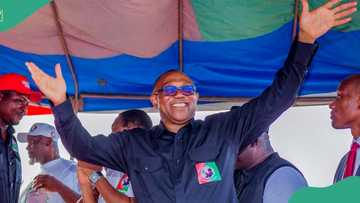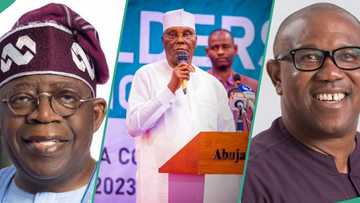Atiku, Obi vs Tinubu: 5 Key Issues Supreme Court Will Deliver Judgement On
- Nigeria's Supreme Court of Nigeria will rule whether to uphold President Bola Tinubu's election victory, a court notice showed on Wednesday, October 25, after two of his main contenders challenged the September decision of a lower court
- Atiku Abubakar of the People's Democratic Party (PDP) and Labour Party (LP's) Peter Obi, who came second and third respectively in the February vote, alleged that irregularities marred the 2023 election
- The Supreme Court is the highest in Africa's most populous nation, and its decision on Thursday, October 26, will be final
- Legit.ng journalist Ridwan Adeola Yusuf has over 6-year-experience covering politics in Nigeria
FCT, Abuja - The Supreme Court has fixed Thursday, October 26, for judgement it reserved on the two appeals that to nullify President Bola Tinubu's election.
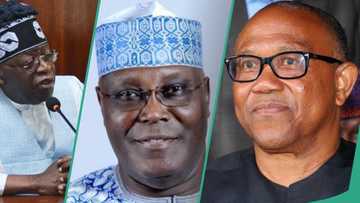
Read also
Presidential judgment: Tinubu, Atiku, Peter Obi told what to do if Supreme Court rules otherwise
On Monday, October 23, the apex court began hearing an appeal by opposition candidates to quash the Tribunal’s decision upholding Tinubu’s victory in the February poll.
The candidates disputing the election are Atiku Abubakar of the Peoples Democratic Party (PDP) and Peter Obi of the Labour Party (LP).
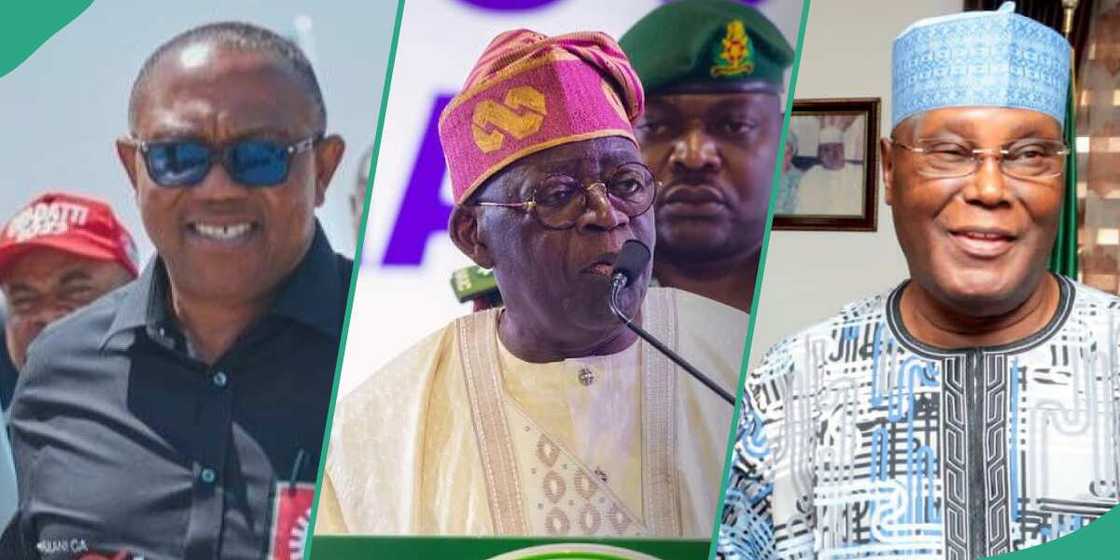
Source: Facebook
Here are some of the key issues raised in the oppositions' appeals:
PAY ATTENTION: Donate to Legit Charity on Patreon. Your support matters!
1) Tinubu's eligibility and Shettima’s candidacy
The opposition is challenging the eligibility of President Tinubu and Vice President Kashim Shettima.
The contention was based on an allegation of Shettima’s double nomination as a vice presidential candidate and senatorial candidate in the same election cycle.
Tinubu, while submitting his presidential nomination form to the Independent National Electoral Commission (INEC) in June 2022, chose Ibrahim Masari, a politician from Katsina state, as a “placeholder”.
Masari served as a placeholder and later announced his withdrawal from the position, which paved the way for Tinubu to name Shettima as his running mate on July 10, 2022.
2) 25% in FCT
Lawyers for Obi argued that Tinubu did not score 25% of the vote in the federal capital territory (FCT), which, according to them, meant he did not meet the legal threshold to be declared the winner.
Under Nigeria's electoral law, a presidential candidate is deemed to have won if he or she gets at least a quarter of the votes cast in at least two-thirds of all the 36 states and Abuja.
The provision has been interpreted differently by the opposition and Tinubu's lawyers.
The opposition says a successful candidate should get 25% of the vote in three-quarters of the states and the same in Abuja, while Tinubu argued that the 25% refers to the states and Abuja combined.
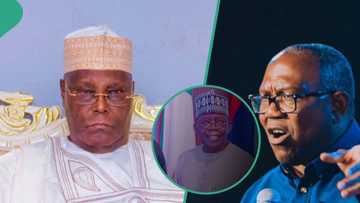
Read also
Supreme Court moved up verdict to protect Tinubu from release of FBI files? PDP chieftain speaks
3) INEC’s challenge with IReV
Atiku and Obi alleged that INEC conducted the 2023 election based on grave and gross misrepresentation.
According to the opposition candidates, their lawyers, and supporters, INEC's alleged misrepresentation was contrary to the principles of the Electoral Act 2022, and against the doctrine of legitimate expectation.
They faulted INEC’s failure to electronically transmit polling unit (PU) results to its Results Viewing (IReV) portal in real-time.
4) Allegations of manipulation in favour of Tinubu
Atiku accused INEC of installing a third-party device to “manipulate” the results of the February 25 poll in favour of Tinubu, the All Progressives Congress (APC) candidate.
Also, Atiku's party, the PDP, accused INEC chairman, Professor Mahmood Yakubu of rigging the February presidential poll.
5) Tinubu’s academic records obtained from CSU
The Supreme Court's panel wants Atiku to prove the allegation of certificate forgery levelled against President Tinubu beyond reasonable doubt.
In his bid to nullify Tinubu’s victory and prove the allegation that Tinubu was not qualified to contest the presidential poll, Atiku had prayed to an Illinois Chicago district court to order the Chicago State University (CSU) to release the President’s academic records.
Subsequently, the CSU produced three out of the four sets of documents requested by the former vice-president to him.
American files fresh motions against Tinubu
In a piece of related article, Legit.ng reported that Aaron Greenspan, an American citizen and founder of Plainsite, a US-based website, filed emergency motions on Wednesday, October 25, at a United States (US) court.
Bayo Onanuga, President Tinubu’s special adviser on Information and Strategy, disclosed this in a tweet.
Source: Legit.ng


